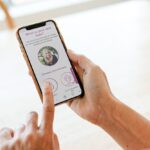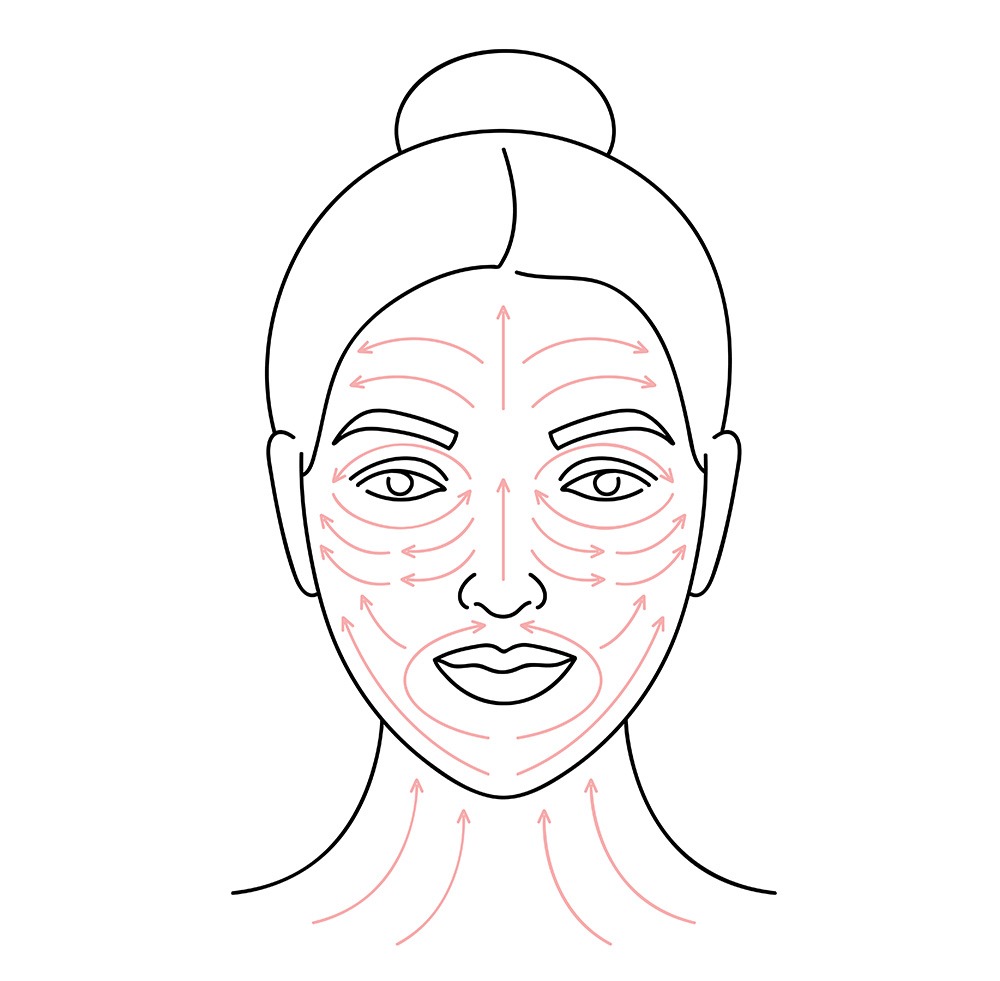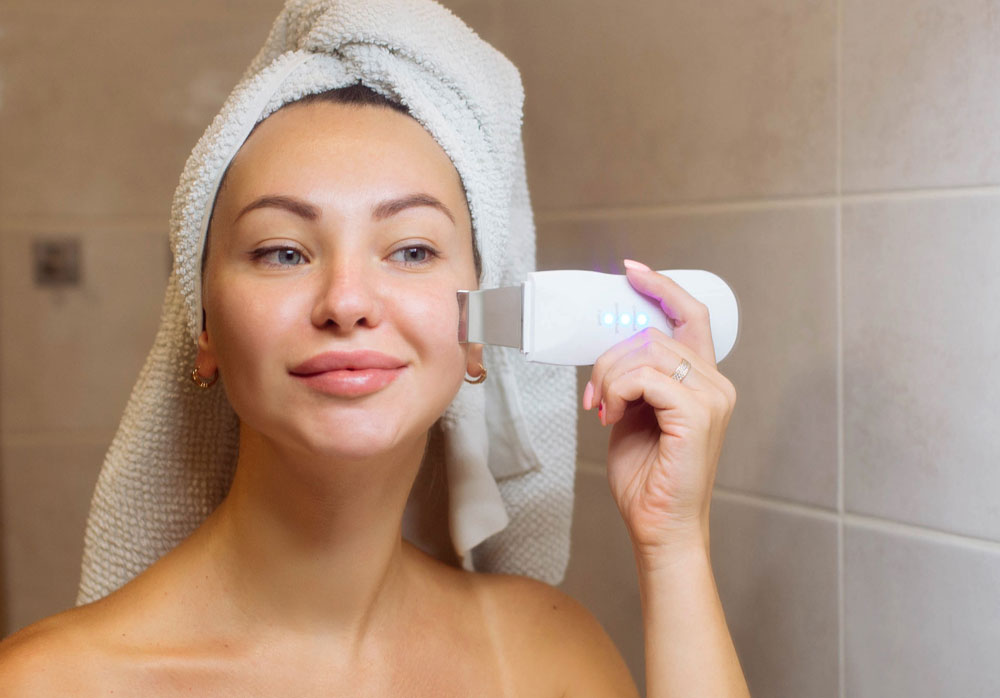Glow Big or Go Home Antioxidant Packed Smoothie
This smoothie not only contains an astounding amount of some of the best whole food sources of antioxidants but tastes like a decadent dessert. (Go on, have it for breakfast, we won’t judge).
My name is Liz and I created your optimized skincare routine and plan. I focused on your high and medium priorities based on your DNA test. I also considered your Yudoyu quiz results which told us about your skin type and feelings about your skin. Your personalized routine includes products packed with ingredients that, with consistent use, will improve current skin quality and protect your future face. Please add lifestyle and dietary changes (outlined below) for an added boost toward happier, healthier skin!
Warmly,
Liz and The Yudoyu Team
We are here to help if you have any questions! Email us at hello@yudoyu.com.S

Sensitive Skin + Over 40
DNA ANALYSIS EXPLANATIONS
Our lab tests 16 core and dozens of secondary genetic markers that contribute to skin protection and premature aging and can play a big role in your skin’s future well-being.
The genes tested are cataloged according to their structural, functional, and metabolic effects on the skin.
Each Skin DNA category provides 1 of 3 outcomes: High Risk, Medium or Low Risk.
How does your skin compare with the rest of the population?
Yudoyu’s partner lab SkinDNA® has established one of the world’s largest derma genetics databases with more than 2 million DNA profiles*.
Our data allows us to discover distinctive skin aging traits shared between groups of people.
Genetically, your body is working at a near optimum. You are producing close to normal levels of collagen to counteract the breakdown process.
COLLAGEN BREAKDOWN: Impaired – You may break down collagen faster than it is produced and be prone to skin laxity and looseness.
COLLAGEN PROTECTION: Optimal – Your body produces the antioxidant responsible for protecting collagen at an optimal level.
Genetically, your body has a reduced ability to efficiently break down glucose. Excess glucose has been linked to a number of traits, amongst them – wrinkles.
WRINKLE FACTOR: Deficient – You have a minimal ability to break down glucose efficiently. Excess glucose molecules stick to collagen and elastin, resulting in cross-linked fibers that are bound together. This ultimately leads to the formation of wrinkles, thinning skin, free radicals, and structural skin damage.

You have a higher probability to experience irregular pigmentation and burning. Your test indicates a number of vulnerabilities in the production of melanin and other processors that function to protect your skin from the sun.
GENES TESTED:
MELANIN 1: Impaired – Your body is prone to irregular melanin production, causing sensitivity to sunlight.
MELANIN 2: Deficient – You are more prone to freckling, hyperpigmentation, and white spots (hypo-pigmentation). Your skin is likely to burn rather than tan.
PHOTO DEFENSE: Impaired – Your body is functioning less than optimally in breaking down free radicals produced from UVB rays. These “Burning” Rays are responsible for sunburns and pigmentation responses.
UV RADIATION REPAIR: Optimal – Your genes are excellent at repairing your skin from DNA damage caused by UVA Radiation (also known as the “Aging Rays”).
UV FREE RADICAL REPAIR: Deficient – Your genetics minimally repair damage from Free Radicals produced by the sun and UVA exposure. This gene is crucial for maintaining the overall health and integrity of skin by repairing any free radical induced damage to your DNA.
Superoxide Dismutase and Glutathione Antioxidant are arguably the body’s most crucial antioxidants. The higher the levels the less prone we are to the destructive effects of free radicals.
GENES TESTED:
SUPEROXIDE DISMUTASE: Impaired
GLUTATHIONE: Optimal
Optimally producing at least antioxidant (Glutathione) will help you efficiently breakdown free radicals and prevent unnecessary damage to skin cells. Increasing your antioxidant intake can help provide added support.
QUINONE DEFENSE: Deficient – Quinones are highly active by products that stem from pollutants such as UV radiation, car exhaust fumes, carbon and cigarette smoke. Once absorbed into the skin (if not efficiently broken down) they can begin to oxidize and cause damage within the skin’s wall. Your results suggest that your skin may be MORE sensitive to environmental pollutants.
Your body may be producing an oversupply of inflammatory proteins. Your results indicate that this oversupply may likely cause rashes, redness or irritation.You may also be more prone to chemical sensitivity issues from exposure to pollution, perfumes and highly active products.
GENES TESTED:
INFLAMMATION: Impaired – Your body may occasionally over-respond to perceived threats, irritating skin cells and causing itching, redness, skin sensitivity, hay fever, or other allergies.
XENOBIOTIC DETOX: Impaired – Your body may not break down xenobiotic compounds such as cigarette smoke, exhaust fumes, air pollution, and alcohol as well as it should. Variations in this gene can create internal inflammation, causing redness, rashes, and acne.
SKIN SENSITIVITY: Impaired – You are likely prone to contact inflammation or irritations caused by cleaning chemicals, perfumed products, active skincare ingredients, preservatives, essential oils, and/or chemical exfoliants.
to help you achieve happier, healthier skin today and well into the future!
Want to start smaller? Try your cleanser, toner, and moisturizer first, then add more later.
Remember to use a broad-spectrum SPF daily (rain or shine). You’ll find more great choices and add-ons in your “just for YU shop.”
Here is your personalized skincare plan based on your results!
Add these easy-to-do lifestyle habits to your daily routine.
Look for these topical ingredients when shopping for skincare.
Please consult your doctor before you begin a new dietary plan.
These minimally-invasive professional treatments will benefit your skin’s texture and make you glow!
Want to dig deeper? Learn about the causes and symptoms of poor skin health, and view our comprehensive list of beneficial ingredients and treatments.
Selected for you!
 Lymphatic drainage is a facial massage to boost the body’s natural draining system. The face is left visibly more lifted, firm, and youthful by assisting in the movement of excess toxins, water, fats, and proteins down the lymph vessels and into the nodes!
Lymphatic drainage is a facial massage to boost the body’s natural draining system. The face is left visibly more lifted, firm, and youthful by assisting in the movement of excess toxins, water, fats, and proteins down the lymph vessels and into the nodes!
Step 1: Apply treatment oil or cleansing balm of choice. Fingers should not drag but glide easily over the skin with little to no resistance.
Step 2: Follow the directional guide demonstrated in the illustration. Using light pressure, gently massage the face upwards and outwardly. Pressure should be not unlike moving a pen across a table. The key is to lift and relax muscles! If redness occurs, lighten the pressure.
Step 3: Finish with a glass of water, herbal tea, or warm broth for added hydration.
What if I’m doing this wrong?
If you are working in upward and outward motions with light, relaxing amounts of pressure, you are certain to fight against one of the main causes of wrinkles – gravity.

This smoothie not only contains an astounding amount of some of the best whole food sources of antioxidants but tastes like a decadent dessert. (Go on, have it for breakfast, we won’t judge).
Here is one of our favorite shortcuts to having both bone broth and soup, without having to make both separately. Did we also mention how delicious it is?
Roasted bell peppers and tomatoes are two of the top ten foods highest in Vitamin C, making this hummus a super-charged source and convenient snack for any time!
This firming, nourishing, best-thing-since-sliced-bread recipe is not only delicious, but easy to make, and extremely affordable.
† Watch for the symbol: These products and ingredients may contain high amounts of iodine. See the iodine warning below before using.
Thyroid Disease Warnings: If you, or someone in your family, are prone to or suspect you might have thyroid disease, we recommend avoiding the use of all of the following ingredients in both skincare and supplements unless otherwise instructed by your healthcare provider:
These ingredients are enormously high in iodine content, a proven, major thyroid disruptor. When applied topically, they can enter the bloodstream.
Resources: https://www.drchristianson.com/the-iodine-controversy/